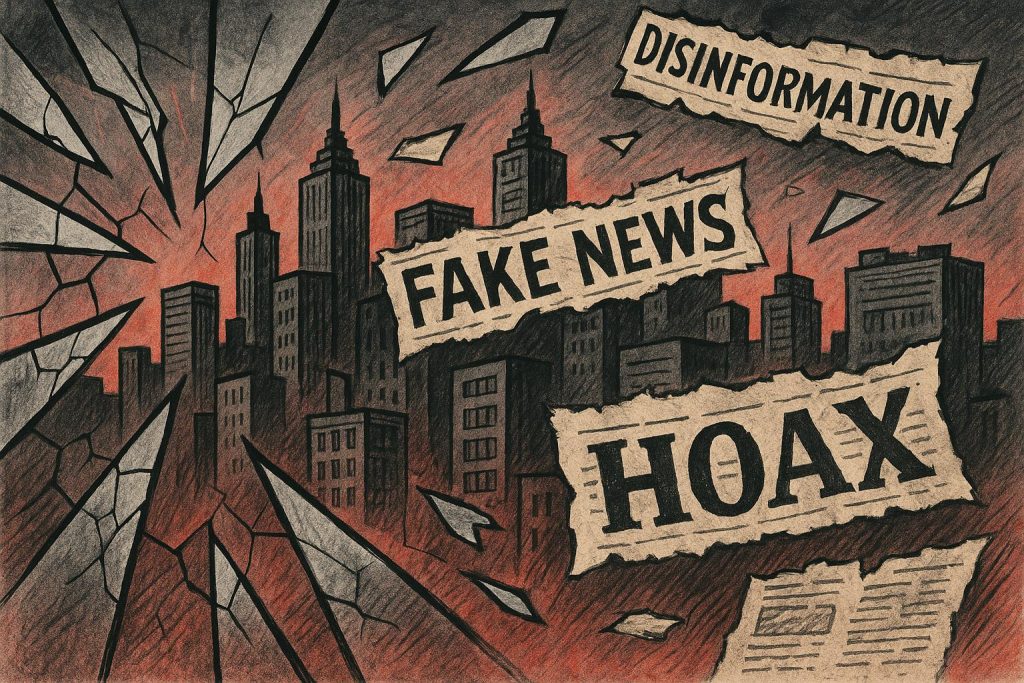Pope Leo XIV has issued an appeal to the global news industry to put truth before clicks, warning that sensationalism undermines public trust and corrodes democracy. Speaking at a conference organised by Minds International – a coalition that includes major news agencies such as Reuters – the Pope urged journalists to resist “the degrading practice of so-called clickbait” and to “never sell out your authority.”
The Pope’s remarks emphasised journalism as a cornerstone of democratic life and social cohesion. “Communication must be freed from the misguided thinking that corrupts it,” he said, describing truth-telling as a moral and civic duty in an era of manipulation and division.
He drew on the ideas of the political theorist Hannah Arendt, warning that lies have long been used to control societies. The spread of misinformation, he said, serves those “who aim to rule by dividing peoples.” Paying tribute to journalists covering wars in Ukraine and Gaza, he honoured those who have died in pursuit of truth and called for the release of 361 reporters currently imprisoned worldwide. “The work of informing the public must never be criminalised,” he said.
Pope Leo’s comments carry added resonance as the first American-born pontiff. A former missionary in Peru, he has made media ethics a central theme of his early papacy, urging communicators to promote peace and avoid inflammatory rhetoric.
He also addressed the impact of artificial intelligence on journalism, warning that AI could flood society with “junk” information and blur the line between truth and fiction. “We are not destined to live in a world where truth is no longer distinguishable from fiction,” he said, calling for greater oversight of who controls AI systems and how they are used.
The speech builds on the legacy of his predecessor, Pope Francis, who denounced fake news and media sensationalism as “a social sickness.” Both Popes, the report notes, see truthful communication as essential to justice and democracy.
Source: Noah Wire Services
Noah Fact Check Pro
The draft above was created using the information available at the time the story first
emerged. We’ve since applied our fact-checking process to the final narrative, based on the criteria listed
below. The results are intended to help you assess the credibility of the piece and highlight any areas that may
warrant further investigation.
Freshness check
Score:
10
Notes:
The narrative is fresh, with the earliest known publication date being today, October 9, 2025. The report is based on a press release from Reuters, which typically warrants a high freshness score. No discrepancies in figures, dates, or quotes were found. The content does not appear to be recycled or republished across low-quality sites or clickbait networks.
Quotes check
Score:
10
Notes:
The direct quotes attributed to Pope Leo XIV in the narrative do not appear in earlier material. No identical quotes were found in previous publications, indicating potentially original or exclusive content.
Source reliability
Score:
10
Notes:
The narrative originates from Reuters, a reputable news agency, enhancing its reliability. The report is consistent with the Vatican’s official communications, as evidenced by the Pope’s address to media representatives on May 12, 2025. ([vatican.va](https://www.vatican.va/content/leo-xiv/en/speeches/2025/may/documents/20250512-media.html?utm_source=openai))
Plausability check
Score:
10
Notes:
The claims made in the narrative are plausible and align with known events. Pope Leo XIV has previously addressed the media, emphasizing the importance of truthful journalism and condemning divisive reporting. ([reuters.com](https://www.reuters.com/world/europe/pope-urges-media-end-divisiveness-calls-release-jailed-reporters-2025-05-12/?utm_source=openai)) The tone and language used are consistent with the Pope’s known communication style.
Overall assessment
Verdict (FAIL, OPEN, PASS): PASS
Confidence (LOW, MEDIUM, HIGH): HIGH
Summary:
The narrative is fresh, originating from a reputable source, and presents plausible claims consistent with known events and the Pope’s communication style. No significant issues were identified in the fact-checking process.





